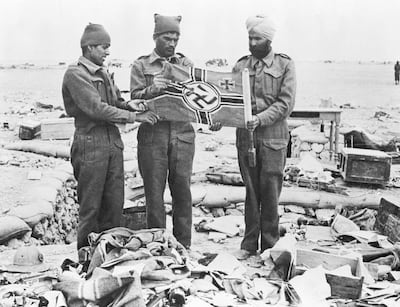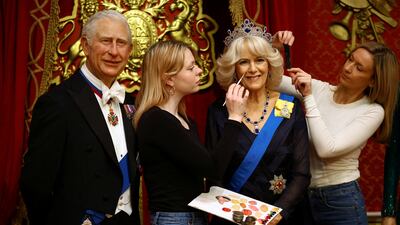In case you missed the news, it will soon be the coronation of King Charles III. At the age of 74, he has spent more time waiting to take up his role than any other British monarch. He follows the longest-reigning monarch in British and English history. And his namesakes probably make for nervous reading: Charles I was beheaded in 1649 after which Oliver Cromwell declared England to be a republic. Charles II became the king of England in 1660 in what’s known as the Restoration. Now, the third Charles in this trilogy also comes at a time of controversy and precariousness for the British royal family, set to a wider context of the country grappling with its sense of identity.
More than any other institution, the monarchy is the most symbolic of Britain – its past certainly. The question, of course, is does it symbolise its future?
A YouGov poll for BBC’s Panorama programme found that 26 per cent of people think the UK should have an elected head of state and a further 16 per cent don’t know. The remaining 58 per cent that think Britain should continue with the monarchy. But these data points belie a generational shift. It’s the over 65s – at 78 per cent – that support the monarchy. But in every increasingly younger age bracket, this reduces – ultimately to just 32 per cent among 18-24 year olds. And in that same age group, they are outnumbered by those who favour an elected head of state (38 per cent).

Whatever the political stance of King Charles’s subjects (we are subjects in the UK, not citizens), the country is currently coronation-tastic. Union Jacks flutter from lampposts up and down high streets. Giant flags hang like bunting in major shopping areas. Supermarkets are stocking coronation biscuit tins. The British do seem to love a good souvenir shortbread container. And retail windows are sporting the coronation insignia wherever you go.
The coronation is a big deal, of course it is. It is the opening of the next chapter in Britain's story. When stories of nations and empires are told, those stories focus on the grand achievements – the wealth, the conquests and the “big characters”, including monarchs and army generals. And nowhere is that more potent than in the symbolism of the monarchy being used to ground a fraught debate about national identity. With heated polemics about the British Empire thrown into the mix – with the centrality of the monarchy in its establishment and maintenance – ensuring that we celebrate the story of the monarch and their family verges almost on the existential. As subjects, the fanfare is designed so that we stay loyal or that we become invested in that story. More than we know about and are invested in our own stories. Perhaps even to the detriment of our own individual story.
Because what we ought to do at this very moment is flip the script. We should use this moment to focus on the people who made all of the power, glory, wealth and histories actually happen. Britain (just like any other nation or empire) wasn't and isn’t just about the kings and queens. Most people were from what we might call the working classes, from the colonies, from trade and from agriculture. They did what we might call “the work” – in the factories, on the ground, in the plantations and on the ships. (We see echoes of this today in those lauded for keeping us going during lockdowns doing the “real” work, but their stories get but a passing plaudit.) But we don't know much at all about these people and their lives because we don't spotlight them in the same way.

And the saddest part is, for most of us, we are those people – whose ancestors, whatever our backgrounds, whether in the rural English countryside, in the factories or in the colonies, were involved in creating the nation, its strength, identity and wealth. Many of us hardly know our own stories, let alone establish the contributions that were made, the roles they played, and the acknowledgement of all that entails.
We must take this moment to focus on the people whose stories are just as important. Especially for children and young people for whom the monarchy is less and less relevant, but whose civic and political engagement is increasing.
When I was growing up, I didn’t really know anything about the way people on the ground built Britain and the British Empire. A big fat zero. But I wish I had, because the story of my life has been completely shaped by it. I started by asking my parents, grandmother, uncles, aunts, family friends … literally anyone who had a story to tell. Through snippets of information, photographs and research online, I managed to piece together my story. Because by knowing where you’ve come from, you can know truly who you are today.
When we know our own individual stories, we can share them, and that helps us to understand each other better, allowing us to compare notes about our different feelings and experiences of the past, and our ideas about it. Understanding your own story and the place you live are among the most important things you can ever do for yourself.


